Articles and Publications
In this section you can find all the publications of EUROPEUM staff and collaborators. Press releases can be found in the About us section.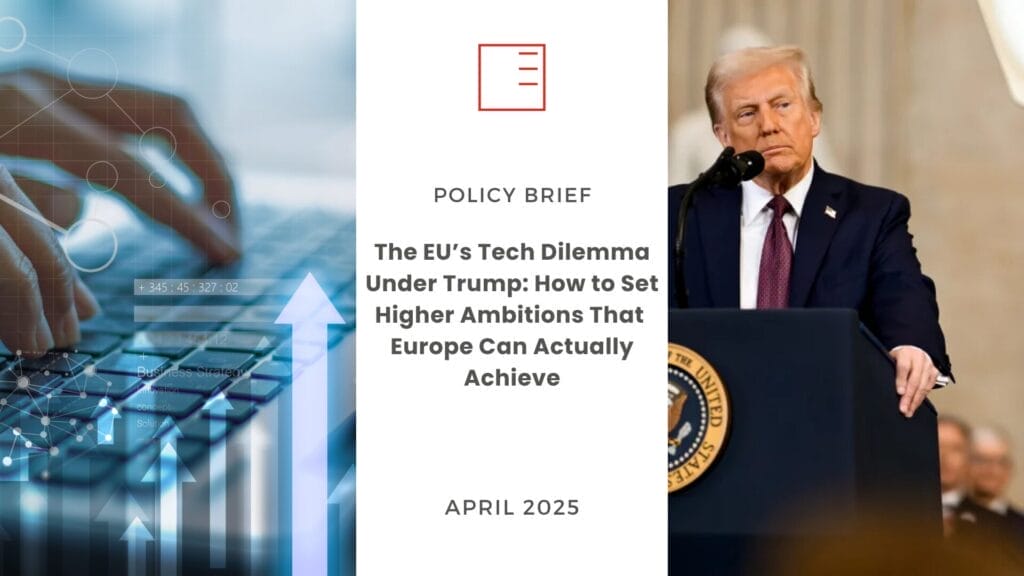
Policy Brief | The EU’s Tech Dilemma Under Trump: How to Set Higher Ambitions That Europe Can Actually Achieve - 10 Recommendations for a Targeted European Tech Strategy
In a rapidly changing geopolitical environment, the European Union faces new challenges in its tech policy, especially under a second Trump administration. The EU’s Tech Dilemma Under Trump: How to Set Higher Ambitions That Europe Can Actually Achieve outlines ten targeted recommendations to help the EU build a realistic and effective tech strategy. The policy brief stresses the urgency of reducing Europe's technological dependencies, prioritizing critical areas, fostering tech adoption to boost productivity, and ensuring open, competitive digital markets. Drawing on insights from leading European think tanks, the paper calls for an ambitious yet achievable mission-based approach to safeguard European democracy, sovereignty, and competitiveness.
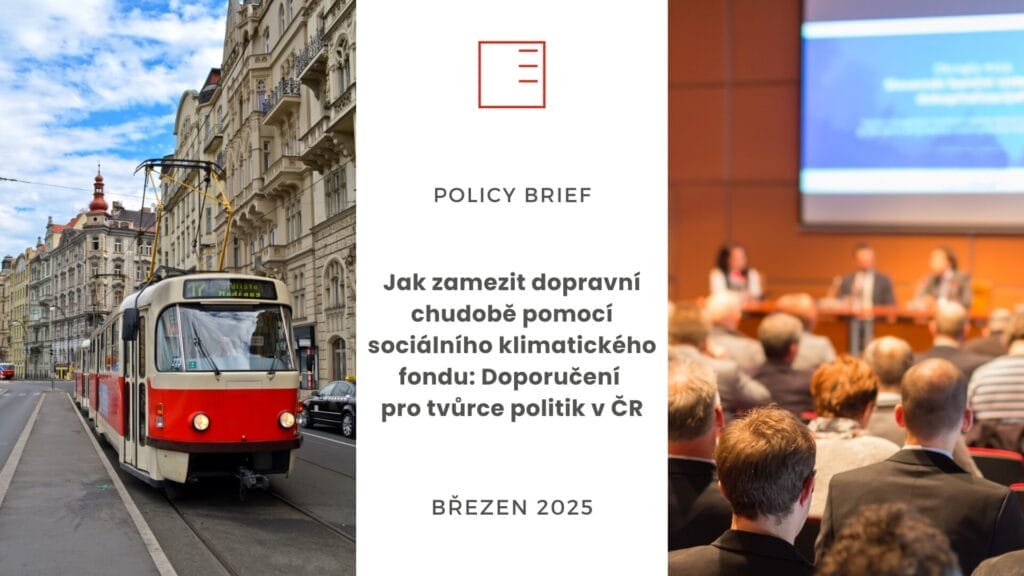
Policy Brief | How to Prevent Transport Poverty Using the Social Climate Fund: Recommendations for Policymakers in the Czech Republic
Our latest policy brief is aimed at policy makers, government representatives and experts who influence the development of climate policy in the Czech Republic. The text, written by Rebeka Hengalová, Research Fellow, and Jana Abíková, Head of the Green Europe Programme, maps the transport needs of the most vulnerable groups in the Czech Republic and provides arguments for the timely and full adoption of ETS2 and the appropriate allocation of the SCF to minimise transport poverty. The brief assesses possible solutions and discussed measures that could be funded by the national Social Climate Plan to reduce the impact of ETS2 on low-income households.

Policy paper | Tackling Transport Poverty in the Czech Republic
While transport poverty does not affect the majority of the population, available data shows that it impacts a significant and growing portion of Czech society, making it a serious issue that cannot be overlooked or expected to resolve itself over time. This policy paper by research fellow Rebeka Hengalová and head of Green Europe programme Jana Abíková details the experiences of transport-poor citizens, outlines good practice of measures from abroad and explains the potential utilisation of the Social Climate Fund in alleviating transport poverty.
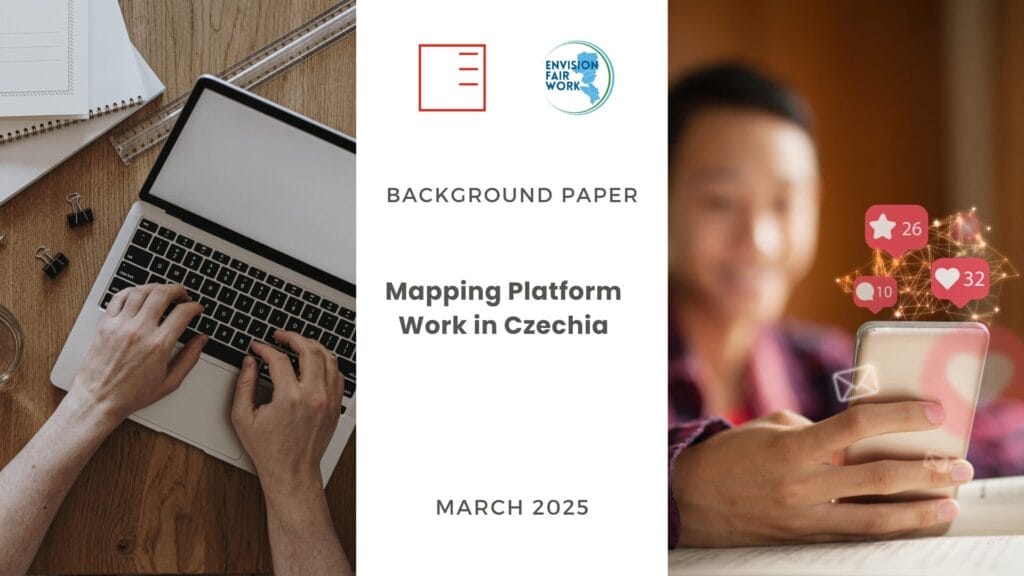
Background paper | Mapping Platfrom Work in Czechia
This background paper, written by EUROPEUM Institute researcher Silke Maes as part of the Platform Revolution project, provides an overview of the evolving landscape of platform work in Czechia. It explores the rapid growth of digital labor platforms since the arrival of Uber in 2014, mapping the types, prevalence, and demographic characteristics of platform workers across the country. Drawing on recent survey data, the paper highlights both the opportunities and challenges posed by platform work—including flexibility, supplementary income, and the risks of precarious employment and regulatory gaps. The paper also examines the current legal and policy framework in Czechia, the discussions around the EU Platform Work Directive, and ongoing debates around worker classification, tax compliance, and social protection.
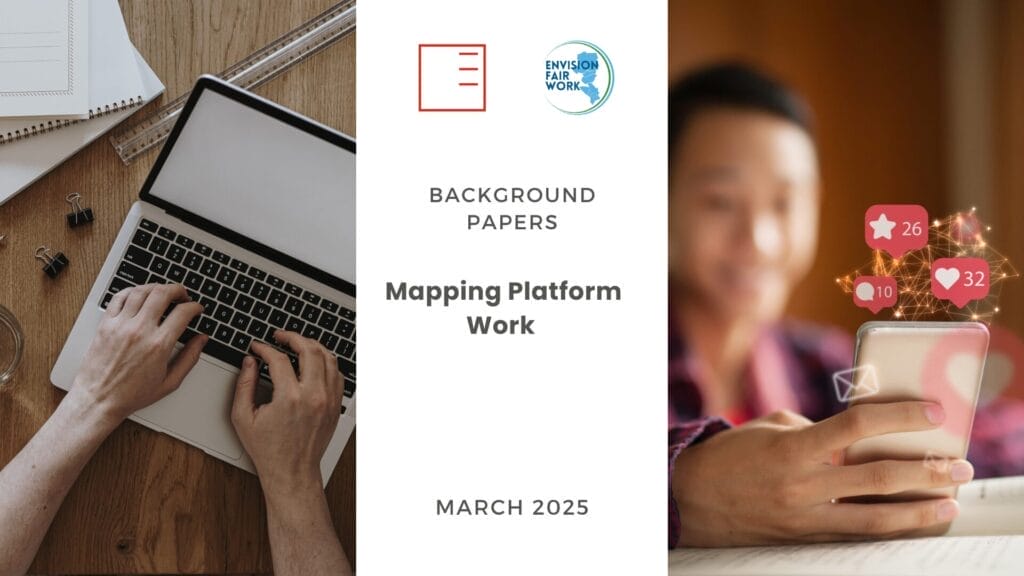
Background papers | Mapping Platform Work
These background papers, produced by EUROPEUM Institute for European Policy as part of the Platform Revolution project, provide an in-depth analysis of the evolving landscape of platform work in North Macedonia, Poland, Serbia, Montenegro, Hungary, Albania and Slovakia. They explore the rapid growth of digital labor platforms, mapping the types, prevalence, and demographic characteristics of platform workers across the countries.
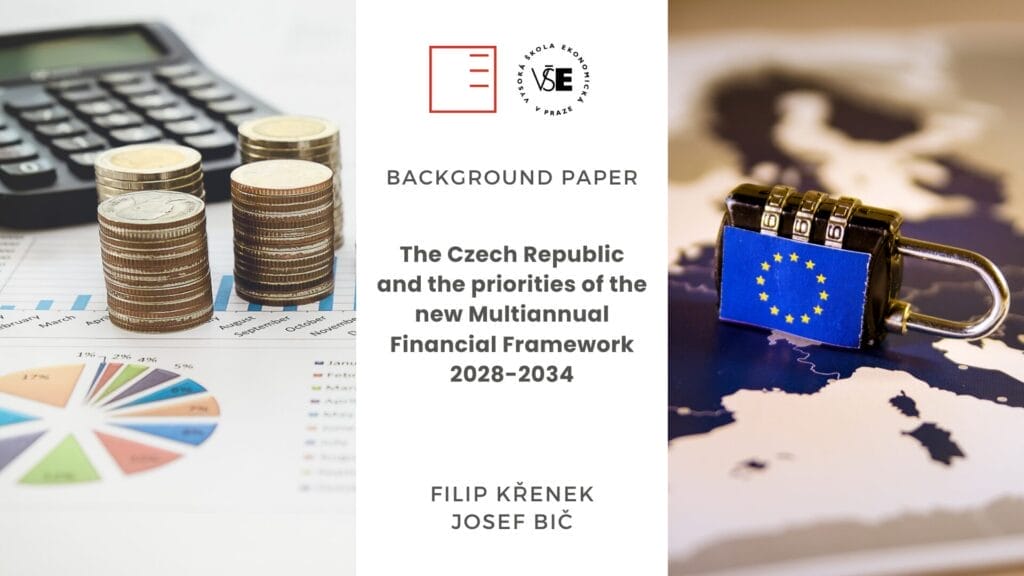
Background paper | The Czech Republic and the priorities of the new Multiannual Financial Framework 2028-2034
The Multiannual Financial Framework (MFF) is the EU's key instrument for determining the expenditure and revenue components of the common European budget. The negotiations on the long-term budget are among the most important and lengthy at European level. It decides on overall spending in traditional areas such as agriculture and cohesion, but also on new priorities such as defence and competitiveness. The European Commission is expected to present its proposal for the 2028-2034 financial framework by mid-2025, but informal discussions on the shape of the proposal are already taking place at both working and political level - the new European Commissioner for Budgets is now touring Member States and the Commission has launched a public consultation on the subject.
The Commission has already presented the broad outlines of the next MFF, including a greater focus on efficiency, added value and simplification. It has also stressed the need for more flexibility to make the budget more responsive to crises. The number of (old) new priorities, including defence, climate and competitiveness, also raises the question of the size of the next European budget and new own resources. The current debate on the Czech priorities for the next MFF is therefore more than appropriate and the Czech Republic should actively enter into negotiations at the European level.
The background paper for the round table of the National Convention on the EU was prepared by Josef Bič (FSV VŠE) and Filip Křenek (EUROPEUM).
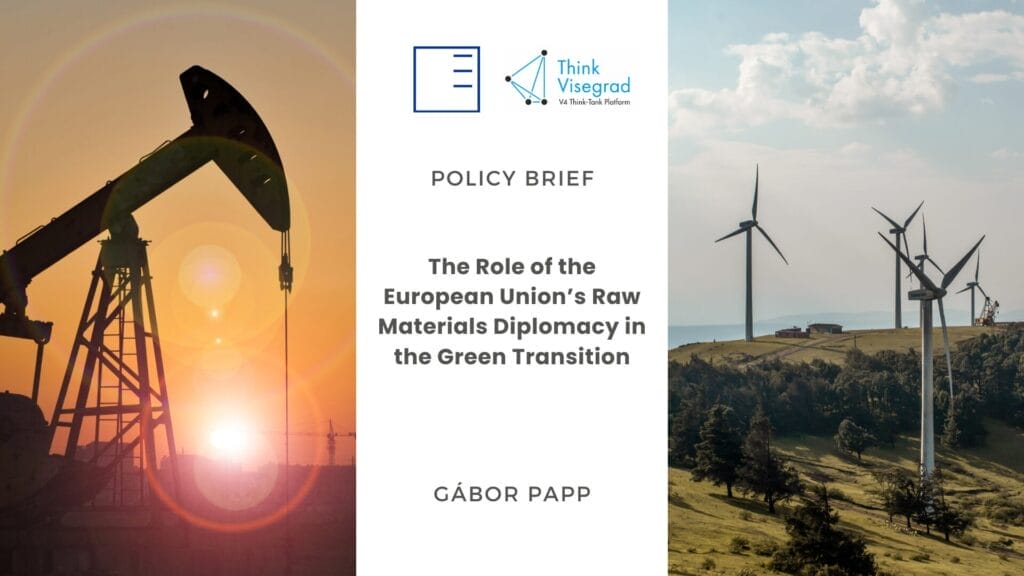
Policy Brief | The Role of the European Union's Raw Materials Diplomacy in the Green Transition
In 2019, the green agenda became the flagship of the European Commission’s politics in the face of the European Green Deal. Five years later, the re-elected Ursula von der Leyen would like to keep this agenda as the number one priority for the next political cycle, expressing this goal also in her political guidelines. Meanwhile, major geopolitical events during the last couple of years have led to an unprecedented interest in the security of energy and raw material supplies. These topics started to gain significant attention during the Covid-19 pandemic, then surged further in the following energy crises, and finally peaked after the outbreak of the Russia-Ukraine war. Even though the question of energy and supply security has global implications and is being discussed globally, Europe was particularly affected by these aforementioned events, writes Gábor Papp, a Research Fellow at the Hungarian Institute of International Affairs, in his policy brief.
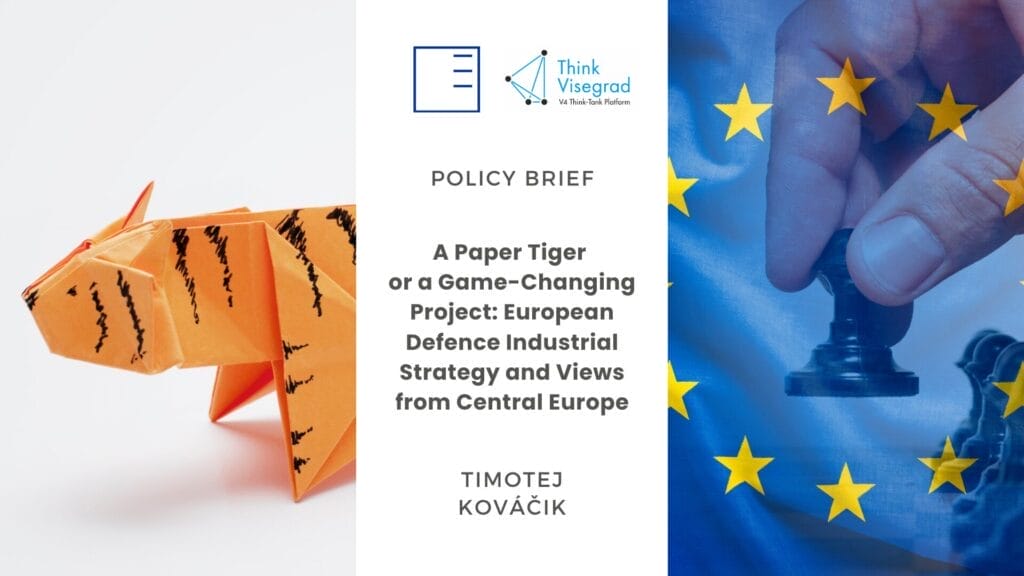
Policy Brief | A Paper Tiger or a Game-Changing Project: European Defence Industrial Strategy and Views from Central Europe
The first-ever European Defence Industrial Strategy (EDIS) was introduced by the European Commission and the High Representative/Vice-President for Foreign Affairs and Security Policy (HR/VP) in March 2024, addressing key challenges in the European defence industry. The strategy aims to increase European defence industrial readiness, encourage Member States to invest in the European defence industry, and reinforce joint European defence procurement and ownership. EU Member States from Central Europe have played a crucial role in supporting Ukraine after the start of the Russian unprovoked and illegal full-scale invasion in February 2022. They also stressed the need to focus the EU's efforts on new initiatives in the field of defence and the defence industry, such as the Act in Support of Ammunition Production or enhancing the European Defence Fund. Writes Timotej Kováčik, Junior Researcher/Analyst focusing on security and defense issues, the EU's Common Foreign and Security Policy, and energy security at the Slovak Foreign Policy Association.
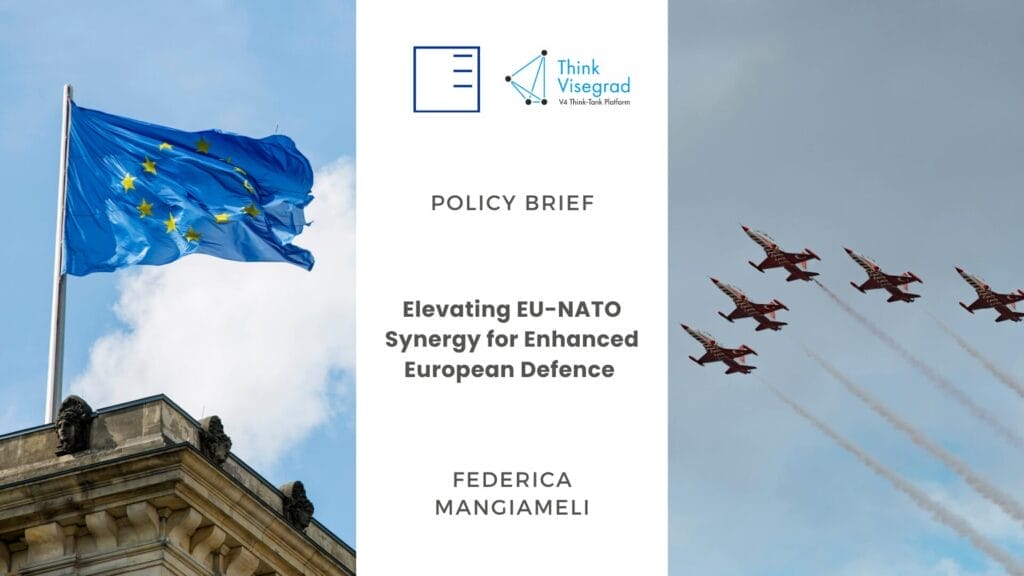
Policy Brief | Elevating EU-NATO Synergy for Enhanced European Defence
For over two decades, there have been numerous attempts to define and frame the relations between the EU and NATO. Three joint declarations and significant steps ahead have been taken and yet, there is no clear vision of how these two organisations should work together more efficiently. The commonly accepted idea of cooperation sees “NATO pulling the strings and the EU pushing the funds” in accordance with their respective nature and scope. Is this unbalanced relation the most suitable strategy to counter current geopolitical threats? No. But can this cooperation be upgraded? Possibly, yet this appears to be easier said than done. Providing the EU with a coherent defence policy and a strong industrial base can be a great additional value for NATO and not just in the extreme case of a possible disengagement of the US. Writes Federica Mangiameli, Programme Manager and Policy Fellow for Defence and Security at GLOBSEC, in her Policy Paper.
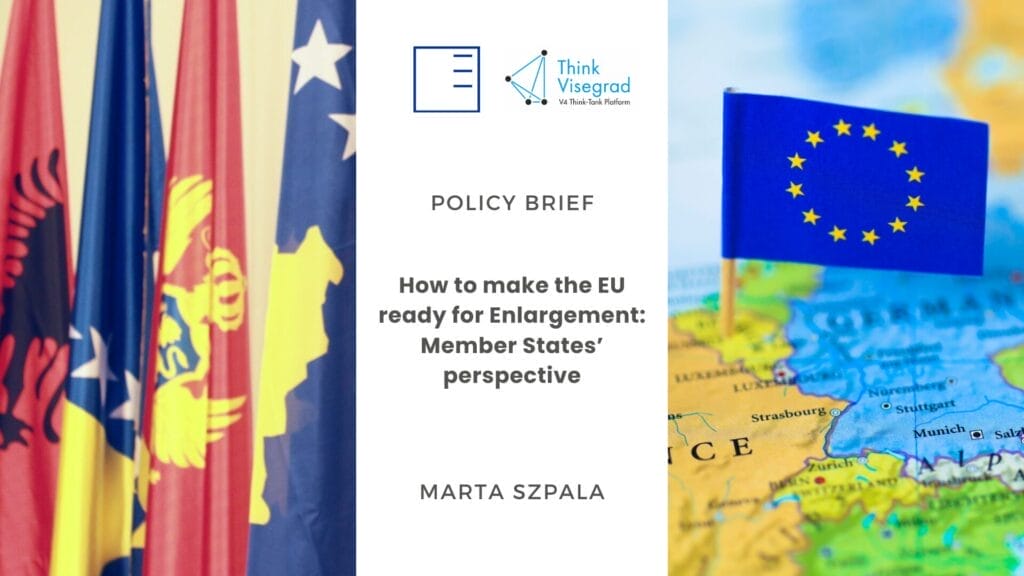
Policy Brief | How to make the EU ready for Enlargement: Member States’ perspective
Russia’s full-scale aggression against Ukraine in February 2022 has brought EU enlargement back as a priority of the EU policy towards the neighbourhood and as a geopolitical tool to ensure peace, stability and prosperity on the entire continent. That resulted in the EU recognising the aspiration of the Associated Trio countries to join the EU and granting membership candidate status to Ukraine and Moldova in 2022 and to Georgia in 2023. In record time, the former two countries also started the EU accession process in June 2024. The accession process of the candidates from the Western Balkans also accelerated. Bosnia and Hercegovina was granted the candidacy status and accession talks with Albania and North Macedonia started in 2022. However, despite the general consensus that enlargement is a geopolitical necessity, the question posed by French President Emmanuel Macron in Bratislava in 2023 – How should we do it? – still remains unanswered. Writes Marta Szpala, a Senior Fellow in the Central European Department at the Center for Eastern Studies.
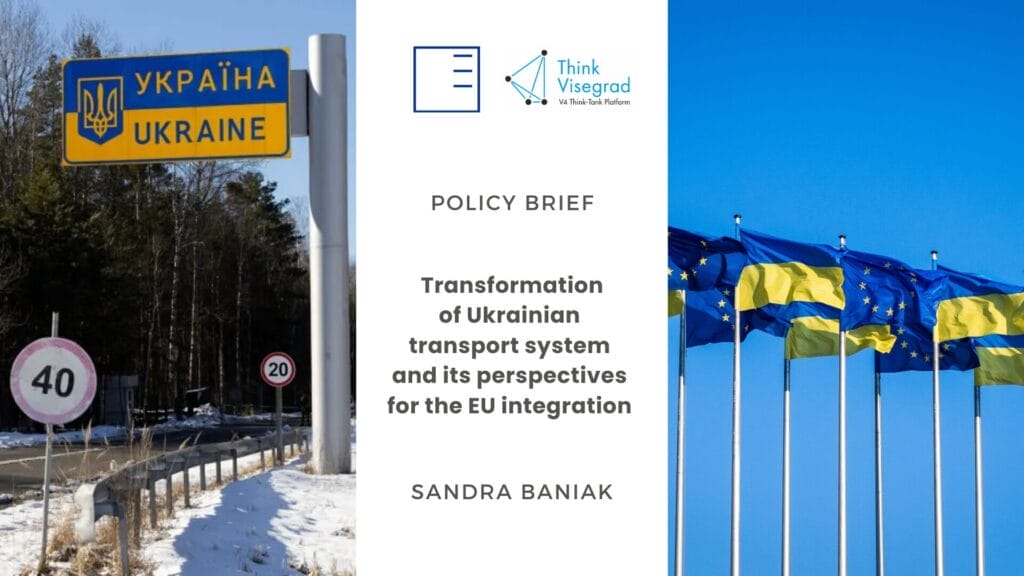
Policy Brief | Transformation of Ukrainian transport system and its perspectives for the EU integration
Russia's full-scale invasion of Ukraine has led to significant changes in the Ukrainian transport sector due to disruptions in supply chains, cargo flows, and damage of the country’s infrastructure. The Ukrainian transport system has undergone significant transformations. The country's borders with Russia and Belarus and its airspace have been closed. In the first months of the full-scale war, the temporary blockage on the operation of Black Sea ports forced Ukraine to develop land transport corridors to the EU countries and neighboring Moldova to enable both export and import of goods needed for the economy. Despite the ongoing war, Ukraine has accelerated a long-planned reform of the country's transport system to adapt its infrastructure to the EU standards and integrate it with the European transport network. Writes Sandra Baniak, a Research Fellow at the Centre for Eastern Studies in the Connectivity and Regional Integration Programme.

Policy Brief | After October 7: EU Policy Towards the Israeli-Palestinian Conflict in 2023-2024
The war between Israel and Hezbollah, after a phase of full-scale confrontation, was halted by an armistice concluded at the end of 2024. The situation, however, remains far from stable, and the effects of the crisis are long-term. The surprise caused by the 7 October attack was shared by the European Union. The new iteration of the crisis in the Middle East represented another major political challenge for the European community, overlapping with those related to the Russia-Ukraine war, the migration crisis and other pressing issues requiring Union’s involvement. The EU's policies towards Israel and Palestine came under scrutiny, and the situation once again highlighted the extensive level of divisions among the EU states, affecting the potency and perception of its actions. Writes Michał Wojnarowicz, an Israel and Palestine analyst in the Middle East and Africa program at the Polish Institute of International Affairs, in his policy paper.